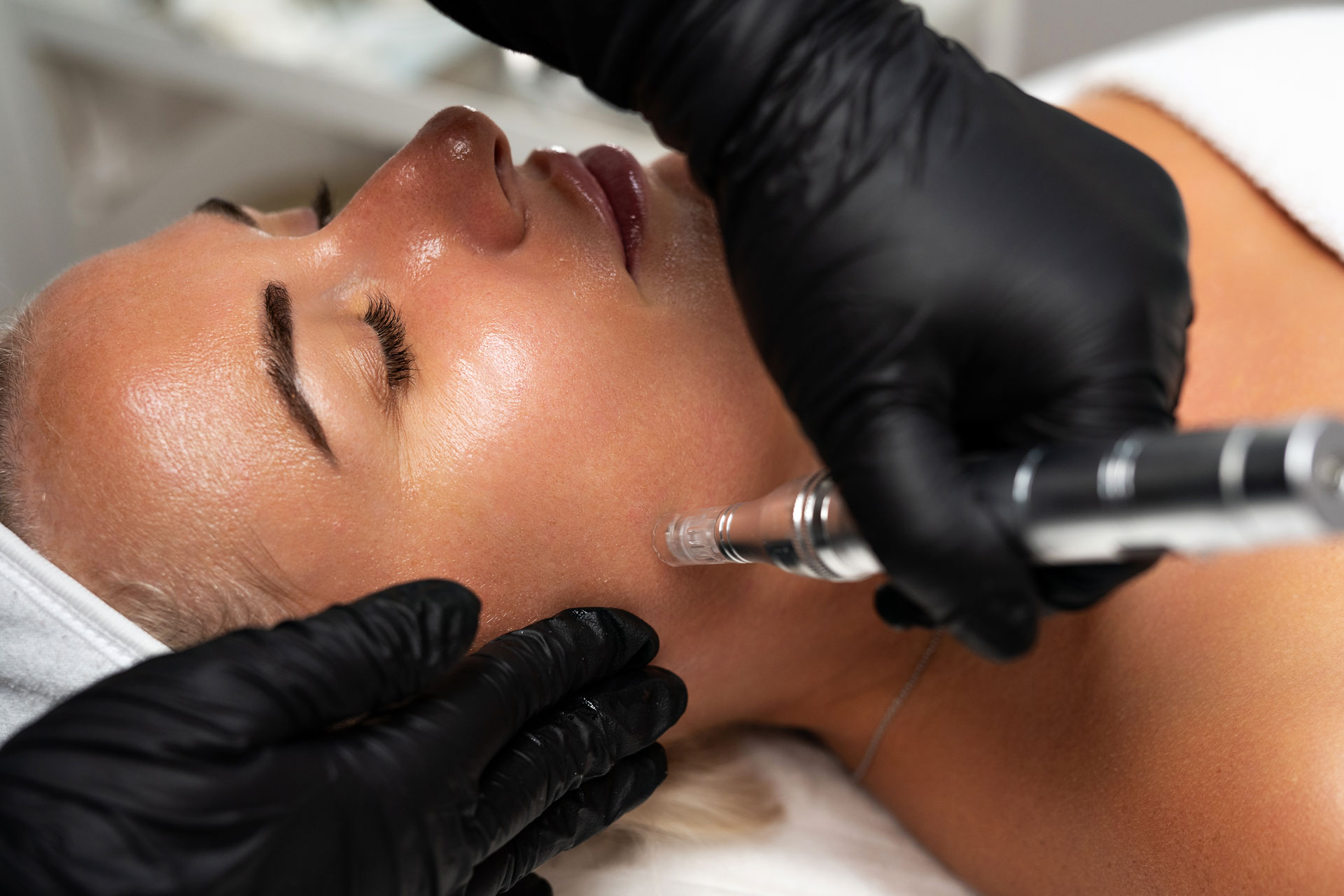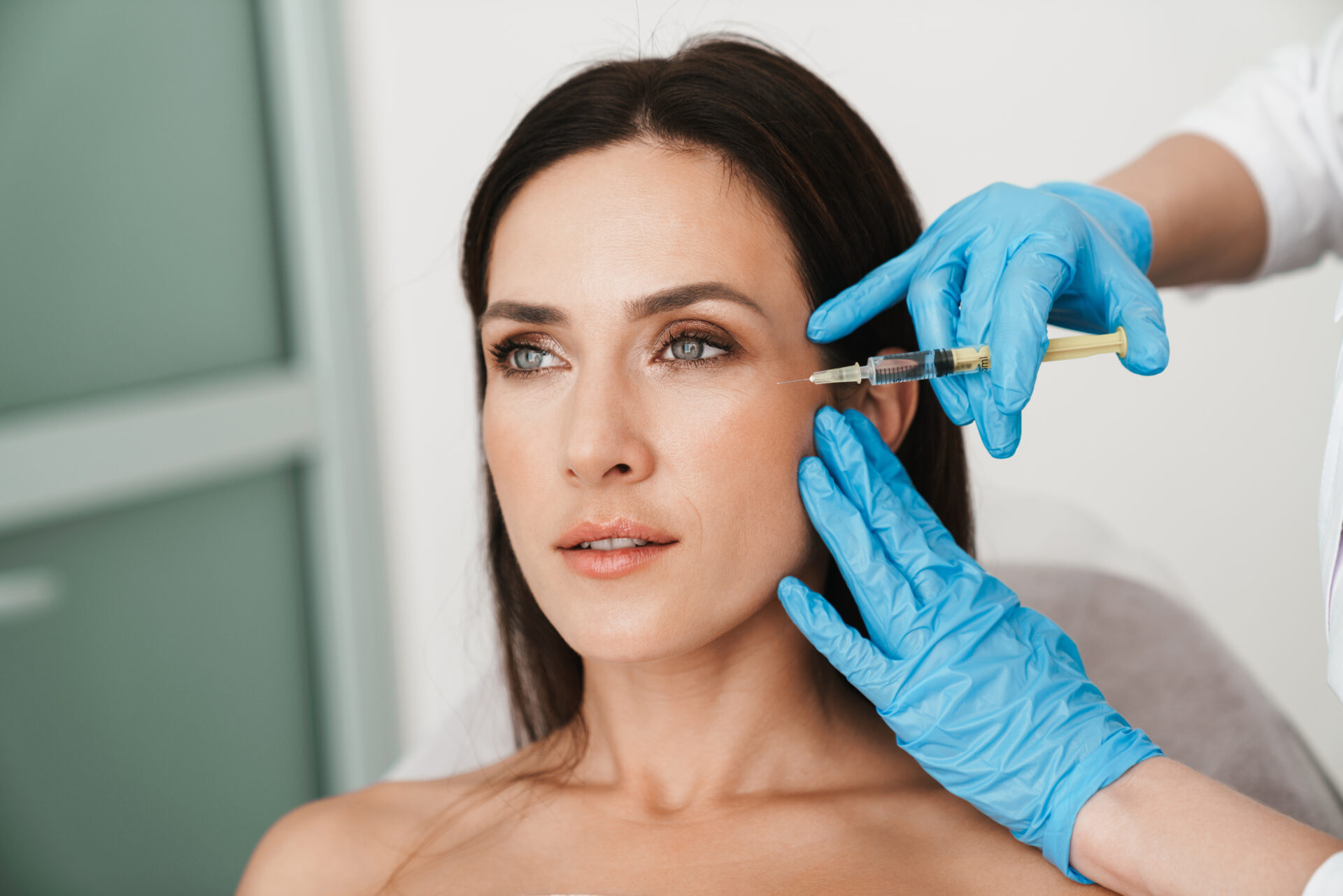Microneedling, also known as collagen induction therapy, is a minimally invasive cosmetic procedure that involves using a device with fine needles to create tiny punctures in the skin. These micro-injuries stimulate the skin’s natural healing process and encourage collagen and elastin production, which can improve skin texture, reduce wrinkles, and treat various skin conditions.
Pros of Microneedling:
Improves Skin Texture and Tone: Microneedling can help refine the skin’s surface, making it smoother and more even. It’s particularly effective for addressing issues like enlarged pores, acne scars, and general skin texture irregularities.
Stimulates Collagen Production: The micro-injuries caused by the needles trigger the body’s natural healing response, stimulating collagen and elastin production. This leads to firmer, plumper skin over time.
Reduces Fine Lines and Wrinkles: By increasing collagen production, microneedling can help reduce the appearance of fine lines and wrinkles, giving the skin a more youthful look.
Treats Acne Scars and Hyperpigmentation: Microneedling is effective for treating acne scars, sun damage, and hyperpigmentation by promoting skin regeneration. It can help break down scar tissue and encourage the growth of new, healthy skin.
Minimally Invasive: Microneedling is non-surgical, meaning there’s no need for incisions or stitches. It typically requires only local numbing, and patients can usually return to their normal activities quickly.
Works for Various Skin Types and Areas: Microneedling can be used on most skin types and tones, and it can be performed on different parts of the body, including the face, neck, and even the scalp (for hair loss treatment).
Minimal Downtime: While there may be some redness or mild swelling post-treatment (similar to a mild sunburn), downtime is typically short, with most people recovering in a few days.
Improves Product Absorption: Microneedling can enhance the absorption and effectiveness of topical skincare products by creating micro-channels in the skin.
Cons of Microneedling:
Possible Skin Irritation: Some redness, swelling, or irritation is common after treatment, and there is a risk of more severe irritation or sensitivity, particularly for individuals with sensitive skin.
Risk of Infection: Since the procedure involves tiny punctures in the skin, there’s a small risk of infection, especially if proper aftercare isn’t followed (such as keeping the skin clean and avoiding touching it).
Not Suitable for All Skin Conditions: Microneedling may not be appropriate for people with certain skin conditions, like keloids, acne, eczema, rosacea, or psoriasis. In these cases, microneedling could aggravate the condition.
Multiple Sessions Required: For significant results, multiple sessions are often needed (usually 3–6 treatments spaced a few weeks apart). This can increase the overall cost and time commitment for patients.
Risk of Scarring: Although rare, microneedling can cause scarring if the procedure is performed incorrectly or if the skin doesn’t heal properly after treatment.
Pain and Discomfort: Though numbing cream is typically applied, some individuals may experience discomfort or pain during the procedure. The level of pain can vary depending on the area treated and the depth of the needles.
Results May Vary: While many people see improvements in skin texture and appearance, results can vary from person to person. Some may require additional treatments to achieve the desired outcome.
Not Instantaneous Results: The effects of microneedling, such as smoother skin or reduction in wrinkles, usually take several weeks to become noticeable as collagen production takes time. This means patience is required.
Microneedling is a popular, minimally invasive treatment that can offer noticeable improvements in skin appearance, texture, and tone, particularly for those dealing with acne scars, fine lines, and skin laxity. However, it’s not without risks, and individuals should weigh the pros and cons based on their skin type, specific concerns, and tolerance for potential side effects. Consulting with a licensed professional is essential to determine if microneedling is right for you and to ensure safe, effective treatment.


